Durand Family Crest, Coat of Arms & Durand Name Origin
|
|
|
|
|
| Return to Home page | Bookmark this page | Link to this page | Send a Durand Postcard |
| Find Your Name | ||||||||
| A | B | C | D | E | F | G | H | |
| I | J | K | L | M | N | O | P | |
| Q | R | S | T | U | V | W | X | |
| Y | Z | |||||||
Durand Family Crest


Origin of the Name Durand
The ancient history of the name Durand was found in the allfamilycrests.com archives.
Over the centuries Surnames developed a wide number of variants. Different spellings of the same name can be traced back to an original root. Additionally when a bearer of a name emigrated it was not uncommon that their original name would be incorrectly transcribed in the record books at their new location. Surnames were also often altered over the years based on how they sounded phonetically and depending on the prevailing political conditions it may have been advantageous to change a name from one language to another.
Variants of the name Durand
include Durande, Durant, Durrant and Durran. This name is of Scottish descent and is found in many ancient manuscripts in that country. Examples of such are a Michael, son of Durand, who witnessed a grant by Thomas, son of Andrew of Kyrconeuel, to the Abbey of Holmcultran in the year 1280. A Wautier Durant of Dumfriesshire rendered homage in the year 1296. A Malcolm Durande was Canon of Glasgow in 1497. Names were recorded in these ancient documents to make it easier for their overlords to collect taxes and to keep records of the population at any given time. When the overlords acquired lands by either force or gifts from their rulers, they created charters of ownership for themselves and their vassals. In Ireland this name and its variants were introduced into Ulster Province by settlers who arrived from England and Scotland , especially during the seventeenth century. It was the 'Plantations of Ireland ' in the sixteenth and seventeenth centuries that marked the end of Gaelic supremacy in Ireland . While the influx of settlers in the wake of the earlier Anglo-Norman invasion of the twelfth century resulted in a full integration into Irish society of the new arrivals, the same never occurred with the Ulster Planters who maintained their own distinct identity.
The Durand coat of arms came into existence centuries ago. The process of creating coats of arms (also often called family crests) began in the eleventh century although a form of Proto-Heraldry may have existed in some countries prior to this. The new art of Heraldry made it possible for families and even individual family members to have their very own coat of arms, including all Durand descendants.
|
WONDERFUL GIFTS FOR EVERY OCCASION
Show Off Your Heritage With Our Range Of Top Class Gifts For Your Family Name! VERY LIMITED TIME OFFER: FREE DELIVERY!!! |
||
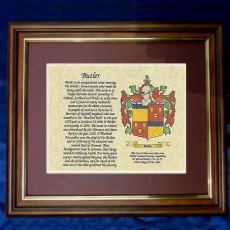 Parchment Prints: Framed, Unframed, Perfect  |
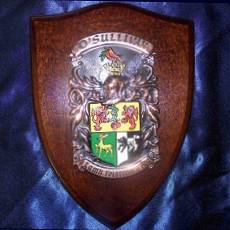 Researched Hand-Painted Plaques & Shields  |
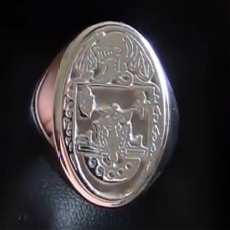 Incredible Hand-Engraved Signet & Seal Rings  |
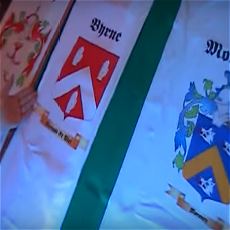 Get your Family Crest Flag, on Ireland or White background!  |
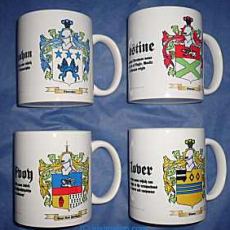 Personalized Coffee Mugs Make Thoughtful Personalized Gifts  |
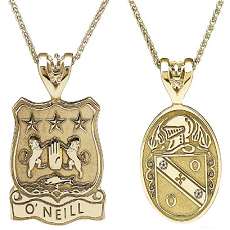 Engraved Pendants in Gorgeous Gold or Stylish Silver.  |